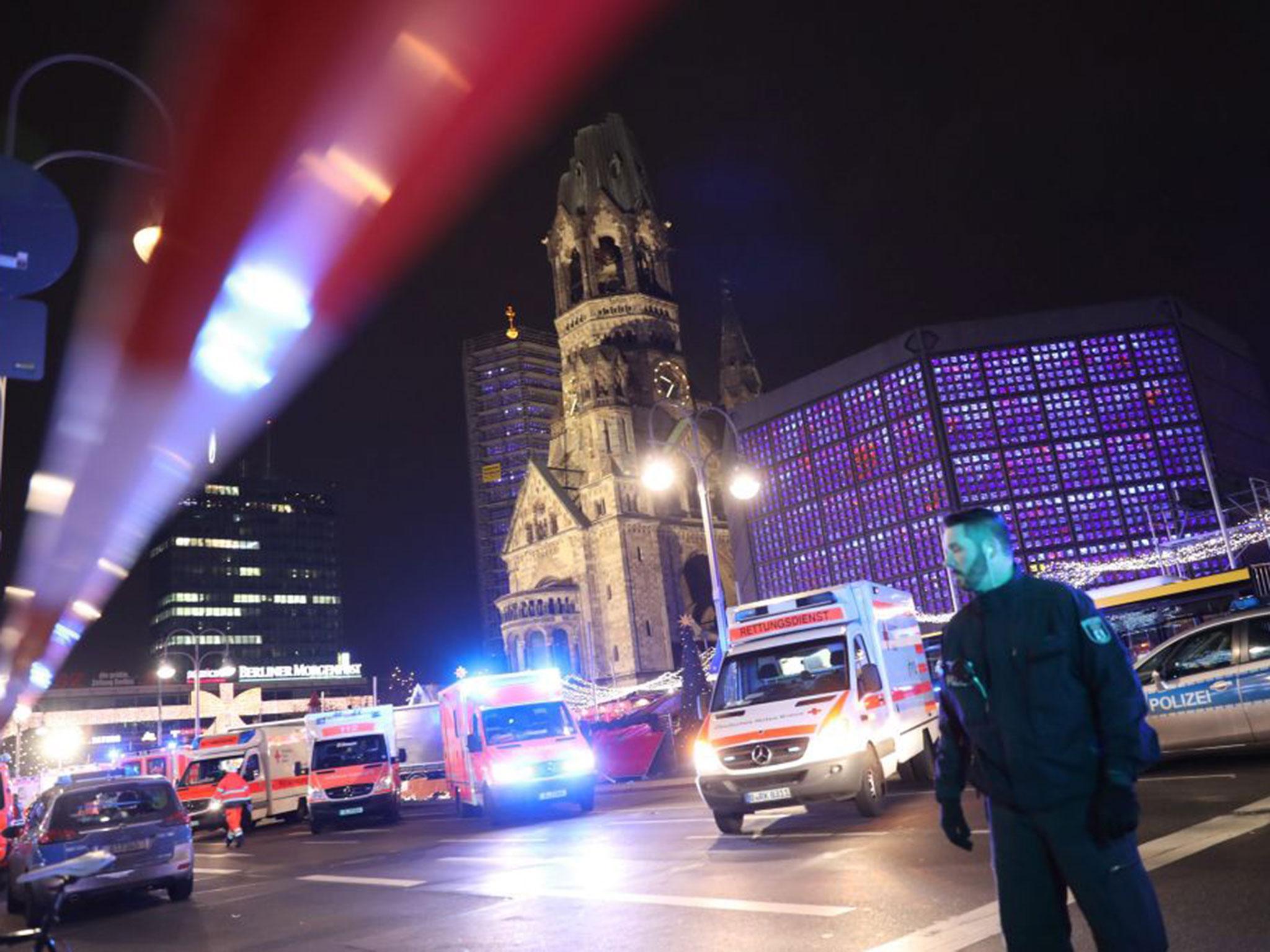Berlin attack: What are the travel implications for tourists?
British Airways and easyJet allowing holidaymakers in Berlin to come home early

Once again, mass murder has taken place in a great European city. As with the attack in July on the Promenade des Anglais in Nice, in which 86 people died, a celebration has changed in seconds into a massacre, with a lorry used as an instrument of terror. This latest attack, at the heart of German culture in the capital, shows the risks of an unsophisticated weapon that is very difficult to defend against.
As millions of British holidaymakers prepare to fly away for Christmas, what are the implications for travellers from the tragedy in Berlin?
In the immediate aftermath of the attack in Berlin, what is the official advice?
The police in Berlin initially advised everyone in the German capital to remain inside. The advice was: “Please help us. Stay home and do not spread rumors.” The emergency number for those who fear that their loved ones might be involved in the incident is +49 30 54023 111. You can follow the latest police advice on Twitter.
Were there warnings about the possible attack?
Yes. The Foreign Office describes Germany as having “a high threat from terrorism”. Christmas markets across Europe have been identified as targets, partly because of their Christian symbolism, but more significantly because they are crowded and vulnerable.
The Foreign Office warned: “There may be increased security in place over the Christmas and New Year period, including at Christmas markets and other major events that might attract large crowds.”
In addition, the US State Department warned last month that: “Terrorists may employ a wide variety of tactics, using both conventional and non-conventional weapons” – with a hijacked truck representing an unconventional but very deadly weapon. The “Europe Travel Alert” talked of “credible information” that so-called Islamic State, al-Qaeda, and their affiliates “continue to plan terrorist attacks in Europe, with a focus on the upcoming holiday season”. Both IS and al-Qaeda have urged supporters to attack using trucks.
What protection is there in place against such attacks?
The Foreign Office says that, in Germany, “increased security has been put in place as a precaution at public buildings, major events, transport hubs and large public gatherings.”
Key buildings in many countries, from government ministries to railway stations, have permanent anti-truck barriers, but those are specifically designed to defend against trucks packed with explosives and driven by suicide bombers. They protect buildings regarded as vulnerable, but not the people who are outside the protective cordon.
What are the options for people on holiday or on business in Berlin?
British Airways says it is contacting passengers in the city on its Holidays programme, and offering them a range of options - which will include flying home early if space is available on flights to Heathrow or London City. In addition, easyJet is offering holidaymakers in Berlin the chance to fly home early. Both airlines offer a substantial programme of Christmas market breaks.
What are the options for someone planning to go to Berlin - or elsewhere in Europe - for Christmas or New Year?
From a statistical perspective the risks remain extremely low. Terrorists aim to disrupt daily life, and will see it as a victory if events are cancelled and tourists stay at home.
Of course, travellers should heed warnings from the authorities and pay close attention to advice from local people about staying safe.
But some travellers will be distressed and alarmed at the scenes from the massacre in Berlin and may want to cancel or postpone their trips. Travel insurance does not cover “disinclination to travel”.
Firms such as easyJet, British Airways, Ryanair and Deutsche Bahn (German Railways) may offer the chance to change destination or obtain a refund, but there is no legal obligation for them to do so.
The first travel company to respond was easyJet, which said last night: “easyJet’s thoughts are with those affected by the incident in Berlin’s city centre.
“Our schedule to and from Berlin is operating as normal this evening and is planned to continue as normal tomorrow. We will closely monitor the situation if circumstances change.”
How can I show solidarity for the people of Berlin?
The most positive response is to travel to the German capital. There are plenty of good deals around; Expedia is selling a two-night stay at the fabulous Steigenberger Sanssouci in Potsdam (very handly for Schoenefeld airport) for £273 per person, flying out on 30 December from Stansted on Ryanair.
Berlin Christmas market lorry attack
Show all 18Meanwhile the assassination of the Russian ambassador in Ankara has intensified concerns about travel to Turkey. Is there any change in the advice?
For British travellers, the Foreign Office guidance remains as before: “Attacks are most likely to target the Turkish state, civilians and demonstrations. Nevertheless, it’s likely that some attacks will also target western interests and tourists from western countries, particularly in the major cities.”
Last year, the number of visitors to Turkey slumped because of a series of terrorist attacks. As the main holiday booking season is about to begin, the prospects for holidaymakers switching back to Turkey in large numbers look increasingly remote.
Subscribe to Independent Premium to bookmark this article
Want to bookmark your favourite articles and stories to read or reference later? Start your Independent Premium subscription today.

Join our commenting forum
Join thought-provoking conversations, follow other Independent readers and see their replies